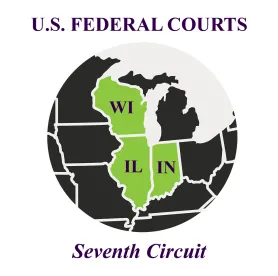The Seventh Circuit recently issued an opinion with significant implications for defendants evaluating the prospects for due process challenges to awards of statutory damages under the TCPA, as well as defendants facing claims of agency liability for the acts of their vendors or contractors. In an opinion by Judge Easterbrook, the Seventh Circuit ordered the District Court to reexamine a “whopping” $280 million penalty against DISH Network, LLC (“DISH”) for violations of the TCPA, the Telemarketing Sales Rule, 16 C.F.R. § 310 (the “Rule”), and related state laws. U.S. v. DISH Network, LLC, 2020 WL 141844, at *8 (7th Cir. Mar. 26, 2020). Although the Seventh Circuit suggested in dicta that the damages award was constitutionally acceptable, it held that the District Court erred because it only considered DISH’s “ability to pay” when calculating the award. Id. The court stated that the analysis should “start from harm rather than wealth, then add an appropriate multiplier.” Id.
Despite the remand on the damages issue, the court largely affirmed the District Court’s judgment finding DISH liable under the TCPA, the Rule and the relevant state statutes. Id. Notably, the Seventh Circuit affirmed the District Court’s ruling that DISH was liable under traditional agency principles for the conduct of third-party “order-entry retailers” who placed sales calls on DISH’s behalf. Id. at *4-6. The court rejected DISH’s argument that two provisions in its contracts with the order-entry retailers precluded a finding of agency. Id. at *3-4. Specifically, the court held that a provision disclaiming formation of an agency relationship and a separate provision stating that the order-entry retailers must follow all laws did not preclude the formation of an agency relationship and vicarious liability for the order-entry retailers’ violations of law. Id. The court concluded that DISH’s control over the order-entry retailers and other contractual provisions created a relationship that was “substantively one of agency.” Id. at *3.
The following sections of this blog post discuss the relevant sections of the DISH opinion.
I. Background
The United States, California, North Carolina, Illinois and Ohio initially filed suit against DISH alleging violations of the TCPA, the Rule and related state laws. Id. at *1. After a five-week bench trial, the District Court held that DISH and its “agents” committed “more than 65 million violations of telemarketing statutes and regulations.” Id. In relevant part, the District Court determined that DISH violated the TCPA, the Rule and the other statutes when DISH employees and third parties called consumers listed on the “National Do Not Call Registry” (the “DNC”) to sell DISH services. Id. The District Court imposed a penalty of $280 million. Id. On appeal, DISH did not challenge any of the District Court’s findings of fact. Id.
As the Seventh Circuit observed, DISH sold its satellite TV service through its own staff and third parties during the time period relevant to the appeal. Id. The appeal concerned DISH’s conduct and the acts of four “order-entry retailers, which used phones to sell nationwide.” Id. “The order-entry retailers took orders from customers and entered them directly into [DISH’s] computer system.” Id. “[DISH] was responsible for installing the necessary equipment and received payments from the customers, remitting to the order-entry retailers a commission for each new customer.” Id.
II. The DISH Appeal
1. Agency Issues
DISH’s appeal challenged the District Court’s conclusion that the “order-entry retailers were [DISH’s] agents, which made [DISH] responsible whenever any of these retailers called a person” on the DNC. Id. at *1.
DISH maintained that the District Court “legally erred” when it “interpreted the contract between the order-entry retailers and [DISH].” Id. at *3. In particular, DISH argued that its contract with the order-entry retailers could not have created an agency relationship because it included an explicit provision stating that the contract does not create such a relationship. Id.
The Seventh Circuit rejected this argument and held that “parties cannot by ukase negate agency if the relation the contract creates is substantively one of agency.” Id. (emphasis in original) (citing Restatement (Third) of Agency § 1.02 (2006)). (For those readers unfamiliar with “ukase,” we looked it up; it means “an arbitrary command or edict,” derived from a Russian term to describe proclamations by czars in Imperial Russia). The court observed that the contract gave DISH “complete control over the order-entry retailers’ performance.” Id. at *3. Notably, the contract provided DISH with “the right to control their performance” and included a provision stating that the order-entry retailers “shall comply with…any term, requirement, condition, condition precedent, process or procedure” that the order-entry retailers received from DISH. Id. Moreover, the contract provided DISH with the power to modify its directives “at any time and…at its sole and absolute discretion.” Id. The court also held that the retailers “acted directly for DISH, entering orders into [DISH’s] system; they did not have their own inventory and were not resellers of any kind.” Id. Thus, the court concluded that “[u]nder normal agency principles,” the order-entry retailers were DISH’s agents “notwithstanding the contractual disclaimer.” Id.
The court noted that the “order-entry retailers were authorized to sell [DISH’s] service by phone nationwide.” Id. at *4. Moreover, as the district court concluded based on the factual record below, “[i]n exercising that authority, the order-entry retailers violated the [TCPA, the Rule and related state laws], and the [D]istrict [C]ourt found that [DISH] knew about these retailers’ wrongful acts (a factual finding not challenged on appeal).” Id. Noting the legal doctrine that “[a] principal that learns of illegal behavior committed by its agents, chooses to do nothing, and continues to receive the gains, is liable for the agent’s acts., the court determined that this was “enough to make [DISH] liable as the principal.” Id. (citing NECA-IBEW Rockford Local Union 364 Health & Welfare Fund v. A & A Drug Co., 736 F.3d 1054, 1059 (7th Cir. 2013)).
DISH also argued that it should not be liable for the acts of the order-entry retailers because its contracts with these entities instructed them to follow all applicable laws. Id. The Seventh Circuit rejected this argument and held that “generic instructions to follow the law” do not “immunize a principal from liability resulting from its agent’s illegal acts, taken within the scope of authority.” Id. The court held that DISH’s agents “acted within their authority to sell TV service using phone calls,” the acts “benefitted [DISH],” and the District Court “found that [DISH] knew what the order-entry retailers were doing.” Id. The Seventh Circuit concluded that this was “enough for [DISH] to be liable for the order-entry retailers’ illegal calls.” Id
2. Damages Issues
DISH raised two arguments on appeal to contest the District Court’s damages award. Id. at *7. First, DISH argued that “the federal and state telemarketing laws violate the Due Process Clause of the Fifth Amendment because they fail to provide notice of the potentially whopping penalties.” Id. The Seventh Circuit quickly disposed of this argument. See id. The court asserted that “[t]his argument supposes that government must provide some notice on top of statutes and rules themselves, but why?” Id. “There’s nothing ambiguous about them.” Id. The court held that “[i]f there is a problem, it isn’t lack of notice.” Id.
Second, DISH argued that the maximum penalties allowed under the TCPA, the Rule and the other related state laws “substantively violate the Due Process Clause because they are too high.” Id. The Seventh Circuit also rejected this argument. Id. The court observed that a maximum penalty of $10,000 per violation multiplied by DISH’s 66 million violations would yield a $660 billion penalty. Id. Nonetheless, “it is not possible to evaluate” this “huge number” “separately from the penalty per violation, which is a normal number for an intentional wrong.” Id. The court reasoned that “[s]omeone whose maximum penalty reaches the mesosphere only because the number of violations reaches the stratosphere can’t complaint about the consequences of its own extensive conduct.” Id.
Moreover, the District Court’s award was for $280 million – not $660 billion – and the Seventh Circuit suggested that this amount was within the constitutionally appropriate range. Id. The court noted that the $280 million award was “closer to $4 than to $10,000 per improper call” and could “be a constitutional problem only if a combination of compensatory and punitive damages adding to $4 violated the Due Process clause.” Id. “Yet if an unwanted call causes even $1 of harm, the ‘punitive’ multiplier (around 3) likely comes within the Constitution’s limit.” Id. Importantly, the court did not issue a ruling on the constitutionality of the $280 million award because it determined that “statutory questions and an evaluation of the judge’s use of discretion must precede any constitutional decision.” Id.
Despite its rejection of DISH’s arguments, the Seventh Circuit held that the District Court erred because it based its “penalty entirely on [DISH’s] ability to pay, setting it at 20% of a year’s profits.” Id. Although the Federal Trade Commission Act and one of the relevant state statutes allow a court to consider the “ability to pay” as one factor in a damages analysis, the TCPA and other state statutes do not include a provision directing the court to consider a violator’s ability to pay. Id. “Normally,” the court stated, “the legal system bases civil damages and penalties on harm done, not on the depth of the wrongdoer’s pocket.” Id. at *8. “Legislatures can change this norm, and two of the statutes underlying this penalty permit consideration of wealth – though none permits it to be the sole factor.” Id. Thus, the court held that it could not find “justification, even under these two statutes, for starting from the defendant’s wealth rather than harm.” Id.
Finally, the court held that the best way “to ensure that [a] penalty [is] within a constitutionally allowable range…is to start from harm rather than wealth, then add an appropriate multiplier…to reflect the fact that many violations are not caught and penalized.” Id.
The Seventh Circuit remanded the case to the District Court for reconsideration of the damages award. The Seventh Circuit also reversed the District Court’s ruling that DISH was liable under the Rule for “substantially assisting” one of DISH’s order-entry retailers in making “abandoned calls.” See id. at *5, 8.
TCPA defendants in the Seventh Circuit should be aware of the DISH holding and its potential impact on how courts may calculate damages in TCPA actions and evaluate challenges to “whopping” statutory damage awards. Moreover, companies should review not only their contracts with third-party vendors but their actual relationships with such entities, including their degree of oversight and knowledge of the third-party’s actions, to assess how this ruling may impact the risk of vicarious liability under an agency theory. Issues of vicarious liability are intricate and fact-specific—and DISH did not challenge the District Court’s factual findings on appeal—but the Seventh Circuit ruling offers a cautionary tale of the risks of assuming that contractual provisions will suffice to negate the existence of an agency relationship and protect a company from liability for the acts of its vendors.





 />i
/>i
